Living with the coronavirus pandemic has meant many of us can’t travel far, with one benefit being more time to take notice of the natural world closer to home. From shield bugs in Stroud to larch flowers in Oxfordshire, UK and European readers have been sharing pictures and stories of their local flora and fauna.
‘We came across a beautiful herd of deer’
This photo above was taken on 26 March on the banks of Loch Arkaig in Lochaber, in the west Highlands. Our family goal during lockdown was to explore the areas around us but in more depth and really embrace the beauty that we have on our doorstep. We came across a beautiful herd of deer, where some of them were involved in a mini springtime rut. I am not really experienced at all in taking “action” shots so I was delighted to find that I had managed to capture this one of two beasts in full horn lock. The fact that we haven’t been able to travel far afield has meant that we have delved more into the local area; finding new walks, reading more about the history of our surroundings. Mark Reynolds, brass instructor, Spean Bridge, the Highlands of Scotland
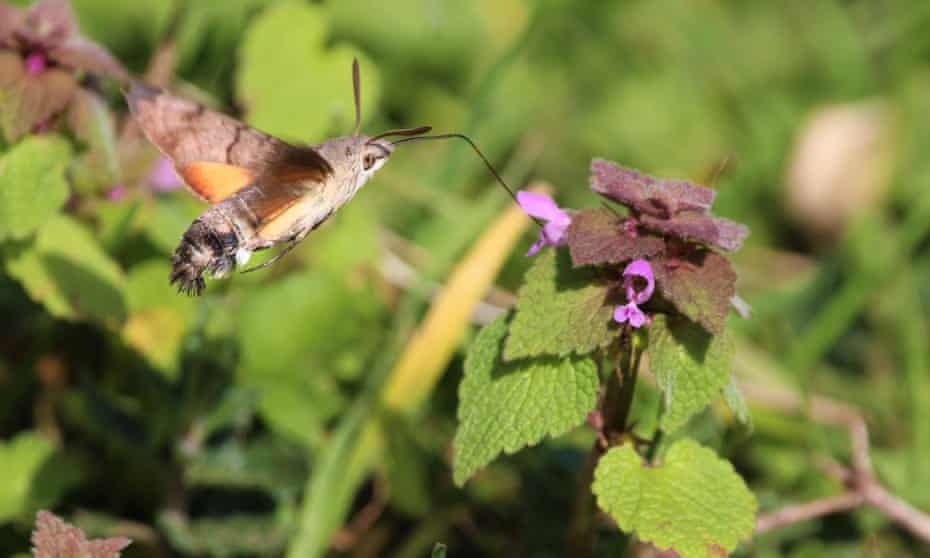
‘We have documented over 500 different species’
This photo of a hummingbird hawk moth (Macroglossum stellatarum) was taken on 18 March as part of a project I started at the beginning of lockdown last year. My aim is to document every species of flora, fauna and fungi in my village – Aubeterre sur Dronne in France – and to hopefully raise awareness of the fight to protect wildlife. So far, with the help of my local community, we have documented more than 500 different species, including some rare orchids and butterflies. Over the last week we have started to see more and more butterflies and moths – including the amazing hummingbird hawk moth. Any new additions feel like such an achievement. Every summer we see thousands of tourists come through the village, so it can be a bit noisy for wildlife. During lockdown, with everything so much quieter, I have observed species I had never seen here before, such as pine martins, snakes and elusive bird species. Daisy Salmon, 23, conservation biologist, Aubeterre sur Dronne, France
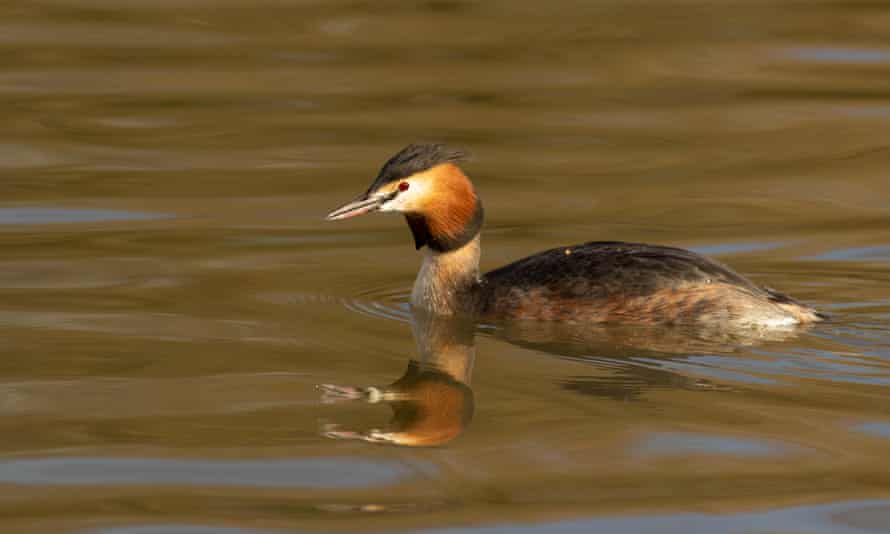
‘I have visited the millpond at least twice a week’
This photo was taken on 6 March at Ifield Millpond in Crawley, West Sussex. It was somewhere I occasionally visited before, but due to the lockdown and needing to stay local, I have visited the millpond at least twice a week. I was so excited to see the great crested grebes close up and watch their courtship display. I’ve wanted to take photos of this for years. I’ve seen more wildlife during lockdown as I’ve had the time to immerse myself in nature. With more time spent in local parks and in my small, urban garden, I’ve appreciated all wildlife, no matter how common it is. Mya Bambrick, 18, student, West Sussex
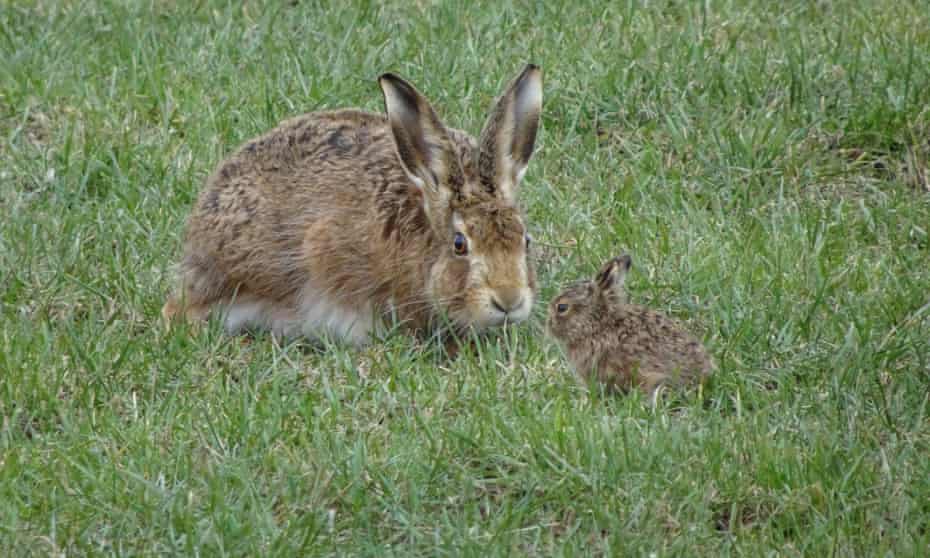
‘I have loved watching the hares in this field’
The photo of a hare and a leveret was taken on 5 March 2021, at Calthwaite, near Penrith, in Cumbria. The hare was in the field immediately next to our garden. Since selling our house at the end of 2018 we have been renting this house until we find the right place to buy in Scotland. We expected to move last year but the pandemic has meant we’re still here. I have loved watching the hares in this field throughout the last two springs and summers, particularly last year when we were at home all the time. There are often three or four of them at a time and I’ve occasionally seen them boxing. Until now they’ve always been too far away or too quick, or both, to photograph. It was only when I looked through the viewfinder that I saw the leveret. Liz Meynell, 57, retired HR manager, Cumbria
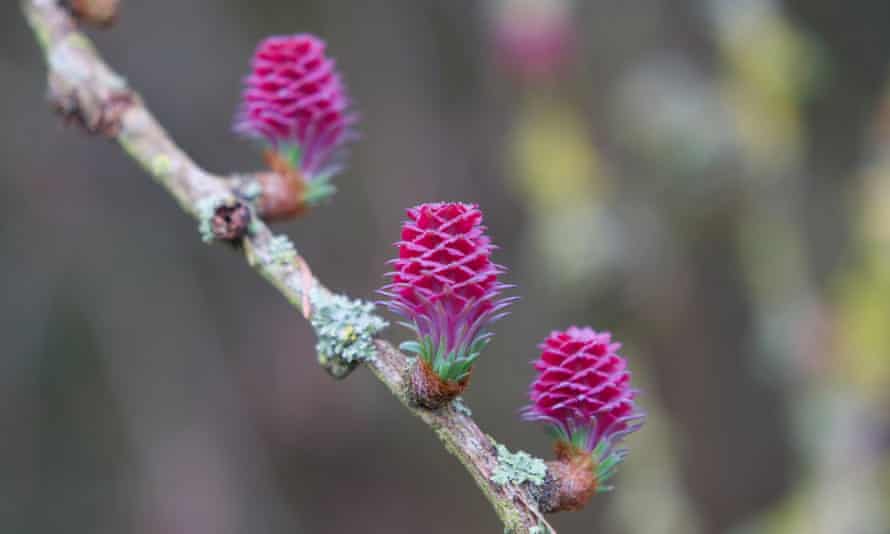
‘I went in search of colour and light’
A lot of my photos are taken within walking distance of my home, as in this case, on 17 March. Occasionally, working as a forester, I am lucky to travel elsewhere to some beautiful forests and always make sure I have my camera with me. I often have an idea of what I may find because I like to keep in tune with nature throughout the year. For this photo I went in search of colour and light. I really wanted to dispel the feeling of doom and gloom after the particularly difficult winter months that we’ve all felt so deeply. I feel these photos bring joy and hope. I am lucky to live in the countryside, but I’ve seen and heard more during lockdown than ever before. Gabriel Hemery, forester and photographer, south Oxfordshire
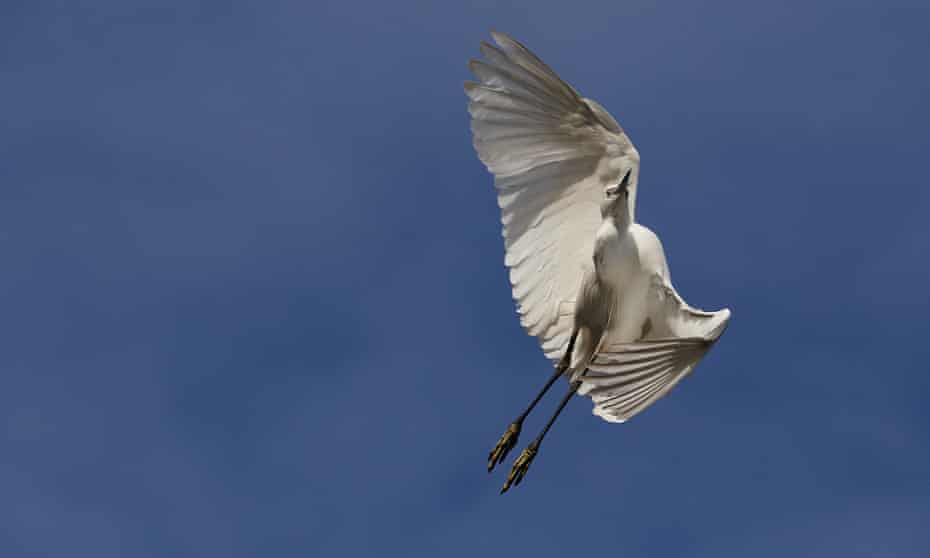
‘I’m sad I didn’t discover this spot earlier’
The little egret photo was taken on 18 March. I started photographing birds late last year to fill my time and have been searching for the spots where I can observe a wide diversity of species within a walking distance. Trittiford Mill Park in Birmingham has been a wonderful spot and I’m sad I didn’t discover it earlier. I had set out that day with the aim of photographing a heron or egret in flight and I was shocked to find two egrets and a heron at the same time. I was thrilled when an egret flew in circles overhead, during which I captured the shot. Egrets are a delight to observe and knowing they’re only a winter resident in much of Britain made it a more valuable experience. Jamal Kabir, 24, hospitality worker and ecological researcher, Birmingham
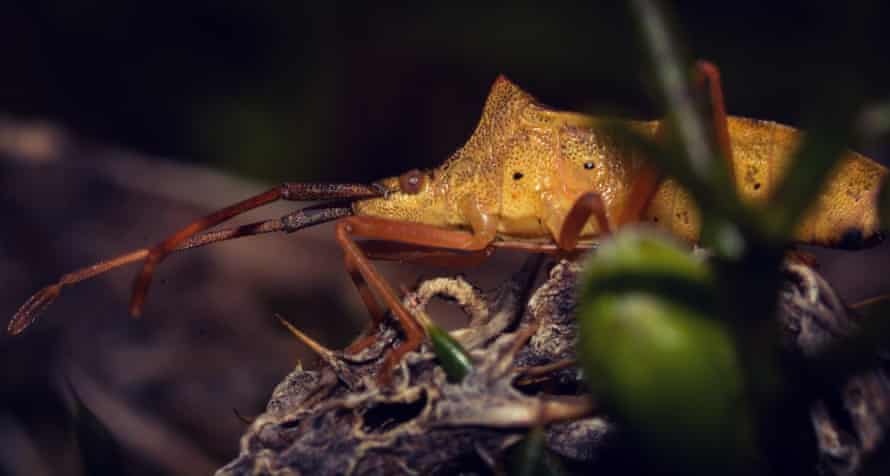
‘It’s helped lessen the feeling of doom’
This photo of a shield bug was taken on 24 March. I generally take photos during my lunch break at work. I’m a cook in a care centre in Gloucestershire, so being able to wander around the grounds with my camera has been a welcome distraction. Insects are starting to emerge, along with lots of birds and some flowers, such as crocuses and snowdrops. The return of the wildlife has come at the same time as we seem to have turned a corner with the pandemic. It’s helped lessen the feeling of doom at times over the last year. Sam Aldridge, 40, care home cook, Stroud
If you would like to send in photos of the wildlife in your local area taken in the last two weeks, you can do so by clicking here.